Introducing Gyeongbok Palace, a famous royal palace in Korea.
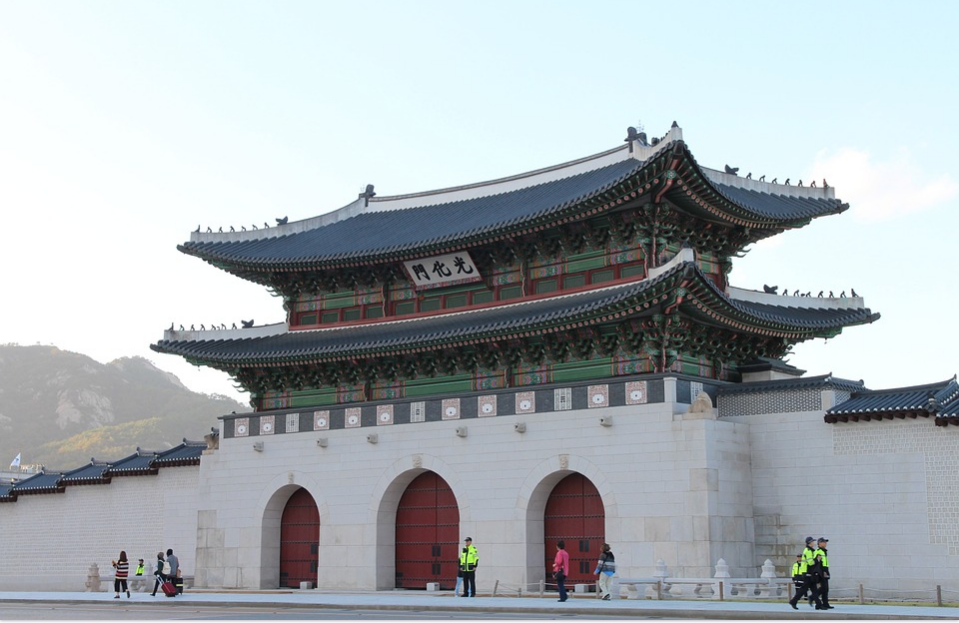
It was in 1395, three years after the Joseon
Dynasty was founded by King Taejo (Yi Seong-gye), when the construction of the main royal Palace was completed after the capital of the newly founded dynasty moved from Gaeseong to Seoul (then known as Hanyang). The Palace was named Gyeongbokgung Palace, the "Palace Greatly Blessed by Heaven.
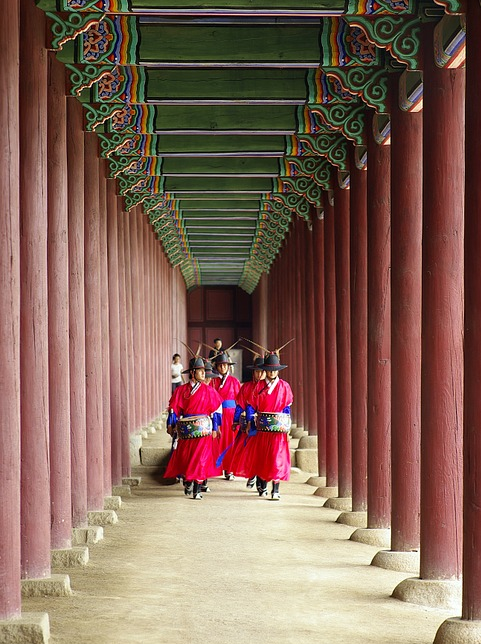
" With Mount Bugaksan to its rear and Mount Namsan in
the foreground, the site of Gyeongbokgung Palace was at the heart of Seoul and, indeed, deemed auspicious according to the traditional practice of geomancy. In front of Gwanghwamun Gate, the main entrance to the Palace, ran Yukjo-geori (Street of Six Ministries, today's Sejongno), home to major government offices. Along the central axis upon which Gwanghwamun Gate stood was the nucleus of the Palace, including the throne hall, council hall and king's residence.
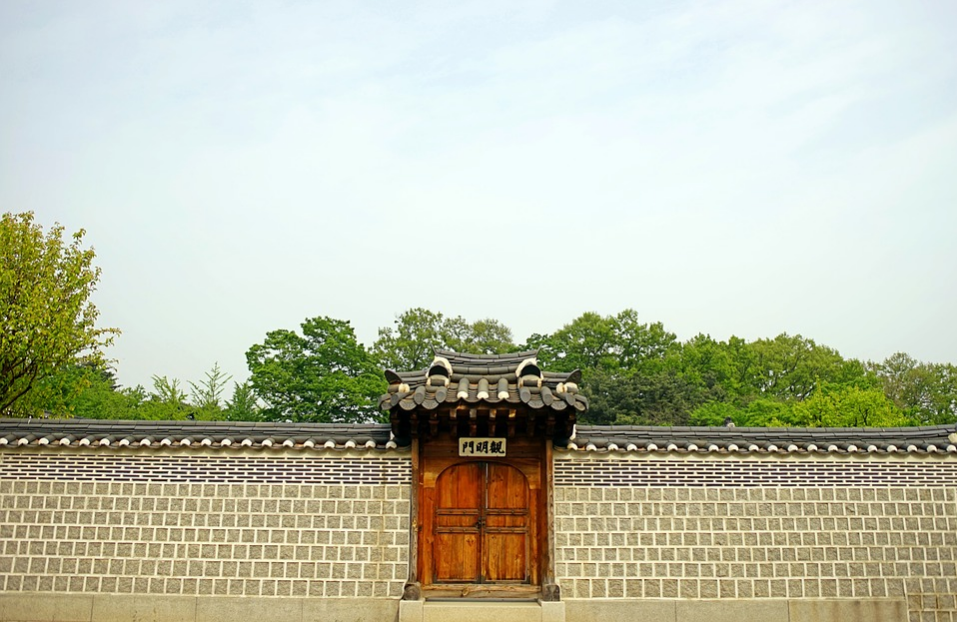
The government ministry district and main buildings of Gyeongbokgung Palace formed the heart of the capital city of Seoul and represented the sovereignty of the Joseon Dynasty. After all the Palaces in the capital were razed by the Japanese during the Hideyoshi invasions of 1592-'98, Changdeokgung Palace, a secondary Palace, was rebuilt and served as the main Palace. Gyeongbokgung Palace was left derelict for the next 273 years. It was finally reconstructed in 1867 by the order of the Prince Regent.
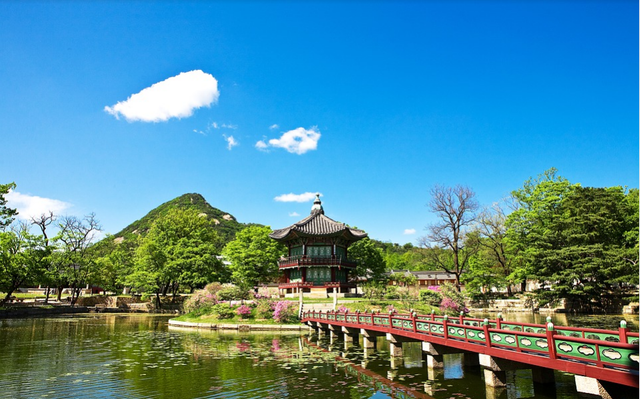
The Palace Prince Regent Heungseon reconstructed was markedly different from the original. Some 500 buildings were built on a site of over 40 hectares and constituted a small city. The architectural principles of ancient China were harmoniously incorporated into both the tradition and the appearance of the Joseon royal court. Gyeongbokgung Palace was largely torn down during the Japanese occupation. ninety three percent of the restored buildings were dismantled, Gwanghwamun Gate was dismantled and relocated to the east, and an enormous building housing the Japanese Government-General was constructed in front of the main sector of the Palace. An effort to fully restore Gyeongbokgung Palace to its former glory has been ongoing since 1990.
The Japanese Government-General building was finally removed, and Heungnyemun Gate was restored to its original state. The royal living quarters and the East Palace for the crown prince were also restored to their original state.!
( )
)
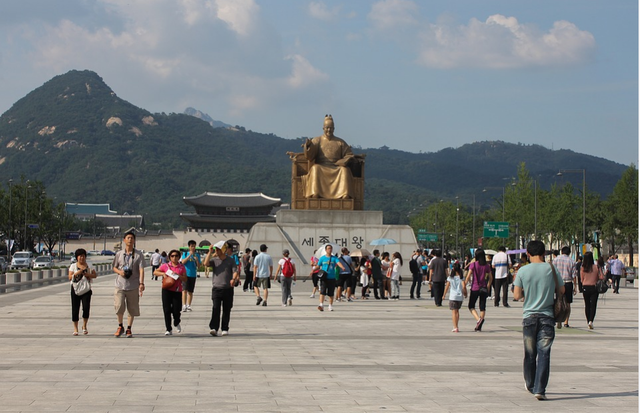
Admission to Gyeongbokgung Palace is advised.
Age 19~64: 3,000 won / 2.400 won ( group, 10 or more )
Age 7~18: 1,500 won / 1,200 won ( group, 10 or more )
- Free: Children(Ages 6 and under), Ages 65 and above
- With the purchase of a book of Combination Tickets (adults 10,000won, Youth 5,000won), one admission for each of the five different Palaces is available within three month. (Gyeongbokgung Palace, Changdeokgung Palace - the Secret Garden included, Changgyeonggung Palace, Deoksugung Palace and Jongmyo Shrine).
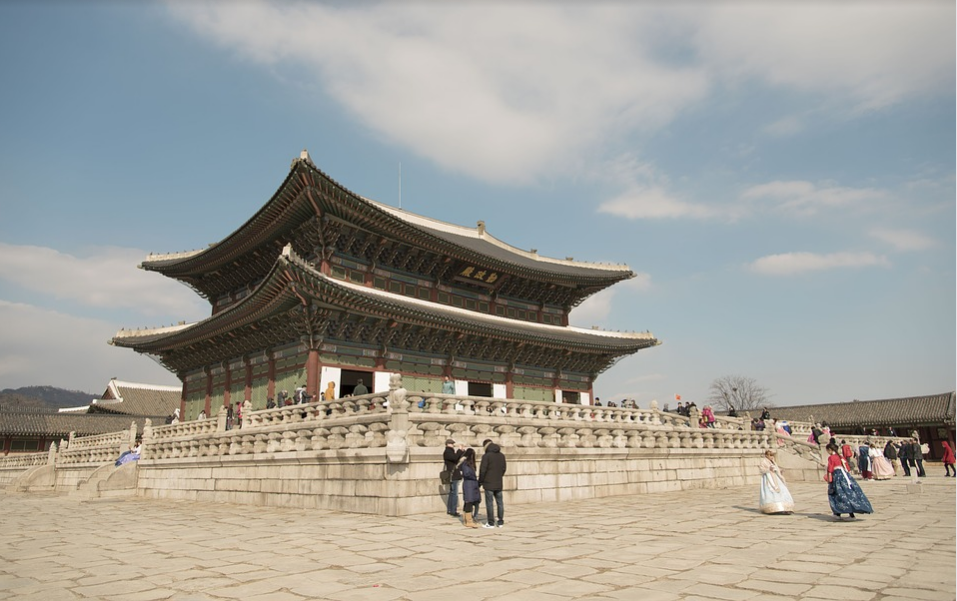
Revival of Grand Archery Meets of the Era of King Yeongjo
Revival of Daesaraeeu of Youngjo age of Joseon Dynasty Significance
The Grand Archery Meets (Daesaryeui) was one of the five major state rites of the Joseon Dynasty, which aimed at promoting harmony and unity as well as ritual courtesy among the kings and their courtiers. The Joseon kings were expected to develop martial skills as well as attain academic knowledge and cultural refinement, which were all considered necessary virtues of rulers. Toward this purpose the royal archery meets began soon after the dynasty was founded. They have been revived, based on events held in 1743, the 19th year of the reign of King Yeongjo.
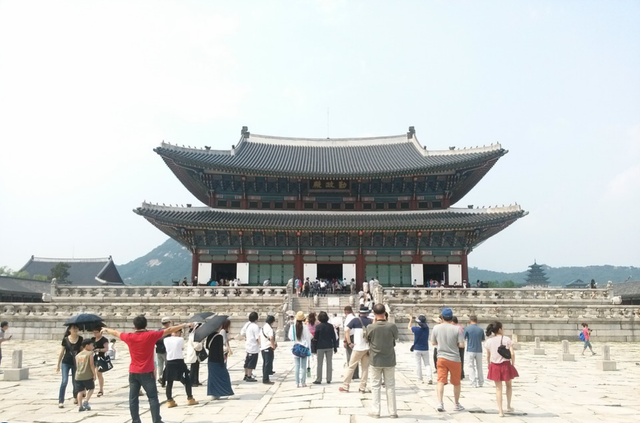
Revival of Daesaraeeu of Youngjo age of Joseon Dynasty Date : October 13?15, 2006 (Friday to Sunday); 2 p.m. daily
Revival of Daesaraeeu of Youngjo age of Joseon Dynasty Place : Square in front of Heungnyemun Gate, Gyeongbokgung Palace
Revival of Daesaraeeu of Youngjo age of Joseon Dynasty Main events
Congratulatory ceremony (jinhaeui), king’s demonstration (eosarye), courtiers’ demonstration (sisarye), and a ceremony for awards and penalties (sasagwan sangbeollye)
Revival of Daesaraeeu of Youngjo age of Joseon Dynasty Auxiliary events
Demonstration of production of bows and arrows, making rubbed copies, and a photo exhibition
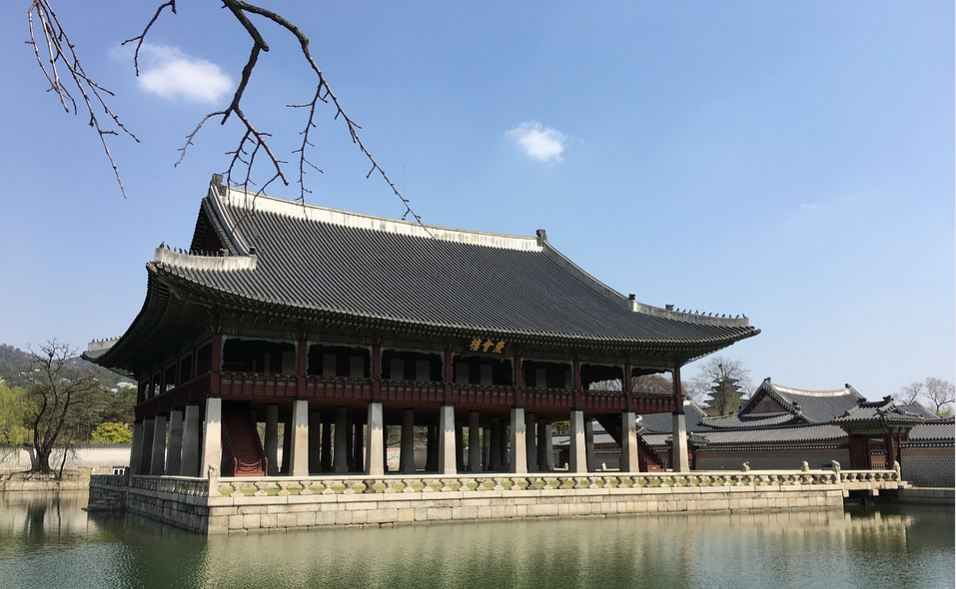
Hi! I am a robot. I just upvoted you! I found similar content that readers might be interested in:
http://www.royalpalace.go.kr/html/eng/data/data_01.jsp?dep1=2
Downvoting a post can decrease pending rewards and make it less visible. Common reasons:
Submit
I have been there, it is a beautiful place indeed. I loved the layout of the place and the city within.
Downvoting a post can decrease pending rewards and make it less visible. Common reasons:
Submit